Campus Speakers Share Their Orientation Experiences
The start of something new is never easy. One of the most important events on a campus event planners calendar is orientation week. It’s a time of life transition – filled with feelings of excitement, fear, and opportunity. There’s a lot of pressure to get the programming right: to make events inclusive, informative & most importantly, memorable.
As you begin planning your 2018-19 Orientation events, we wanted to take a closer look at the experience and offer campus event planners a look at the memories that stuck. We asked some of our most requested campus speakers to take a retrospective look back at their campus introduction.
What was your campus orientation experience like?
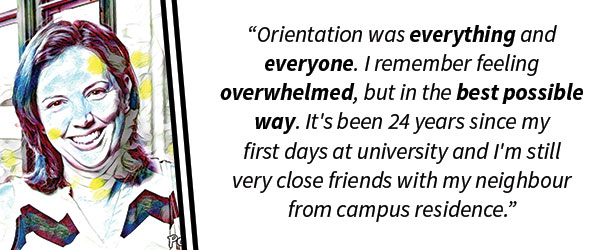 Jennifer Hollett | Head of News and Government for Twitter Canada
Jennifer Hollett | Head of News and Government for Twitter Canada
What’s your advice to campus programmers planning orientation events?
Turn it up! There’s so much happening in the world right now, and students are more connected than ever before. Be current and creative.
![]()
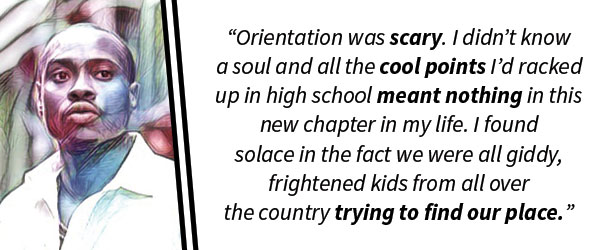 Tiq Milan | Transgender Advocate & Media Consultant
Tiq Milan | Transgender Advocate & Media Consultant
What’s your advice to campus programmers planning orientation events?
I think the best thing programmers can do is create interactive activities that make awkward moments into opportunities to create friendships that may last for years to come.
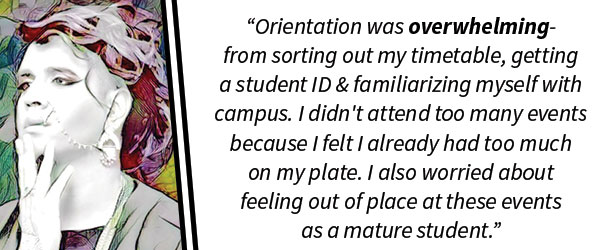 Vivek Shraya | Artist, Educator, & Performer
Vivek Shraya | Artist, Educator, & Performer
What’s your advice to campus programmers planning orientation events?
Less is more. In my experience, as both an artist that has been invited to present at orientation events, and as a recent grad student, I can say that students can feel intimidated by week-long programming. Too many events can also split audiences and result in smaller turnouts. Instead, I have witnessed that the most successful orientation weeks are ones with fewer events, but these events are well-advertised, and the speakers have either high profiles or are multi-faceted, and can speak to a range of experiences, and use a variety of mediums to do so. The student experience is saturated with lectures so, on their own time, students generally prefer to attend events that are exciting and welcoming, while also exposing them to fresh perspectives.
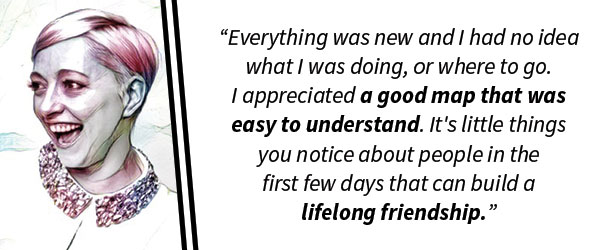 Casie Stewart | Social Influencer & Engagement Expert
Casie Stewart | Social Influencer & Engagement Expert
What’s your advice to campus programmers planning orientation events?
It’s important to have options in the orientation schedule so students can gravitate towards their interests. It’s great to bring a large group together and then have breakout sessions to get to know each other. I remember a panel where we could ask recent graduates and industry experts about their experience, it helped to break down barriers and make everyone feel welcome.
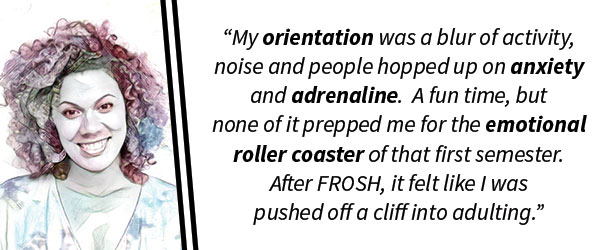 Nova Browning Rutherford | Wellness Expert on CTV’s The Social
Nova Browning Rutherford | Wellness Expert on CTV’s The Social
What’s your advice to campus programmers planning orientation events?
Mix it up! Ra-ra days are fun with a balance of quieter evening spaces to talk and connect (coffee house vibes, movie night & dinner/discussion).
Utilize peer mentors as much as possible to give “the real” on first-year highs and lows (a panel? video clips?), promote off-campus cheap spots for wellness (best trails, parks, city festivals, road trip destinations) so that when school gets hectic, there are places to hide out. Schedule time to debrief after events so organizers can keep an eye on students who aren’t participating, giving students an option who may need different types of connection.

We hope some these experiences have shed light on some often overlooked student perspectives that can help you in developing your 2018 orientation programming.
